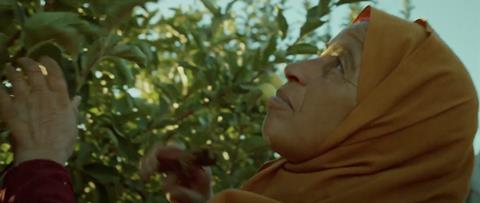World Food Day takes place on 16 October, and IFAD has teamed up with the Global Cinema Advertising Association to highlight the importance of small-scale farmers in feeding the world
To coincide with World Food Day, the Global Cinema Advertising Association (SAWA) and the UN’s International Fund for Agricultural Development (IFAD) have launched a global cinema campaign to highlight the crucial role played by small-scale farmers in feeding the world.
Titled ‘A New Day’, the award-winning 45-second spot focuses on farming communities in Tunisia and elsewhere in North Africa, one of the globe’s harshest growing environments, and the challenges they face.

“Despite enduring severe droughts, the people featured in the film continue to grow food and adapt to climate challenges thanks to support from an IFAD-funded project in Tunisia,” IFAD stated.
The campaign aims to inspire action to boost smart and targeted investments in agriculture, given that such investments are estimated to be two to three times more effective at reducing poverty than investment in any other sector.
“Global cinemas provide the perfect platform to shine a spotlight on the critical issues faced by small-scale farmers every day,” said IFAD’s Kathrine Meighan. “We are very grateful for their collaboration. The film calls on citizens and global leaders to make a choice: react to one crisis after another, or invest in sustainable, structural solutions that ensure food security for future generations.”
The film, which recently won a British Arrow award for cinematography and colour, was conceived by director Jonathan Pearson and London-based production company UNIT9, with Somali-Canadian model, activist and UN IFAD goodwill ambassador Sabrina Dhowre Elba narrating the piece.
“Small-scale farmers produce one-third of the world’s food, yet they are among the most affected by hunger and poverty,” IFAFD said. “Climate change disproportionately impacts them, even as they work to feed the world, receiving only 0.8 per cent of total climate finance, falling far short of needs.
“Investments to boost food production, build resilience to climate change and provide access to knowledge, markets and technologies can lift out of poverty and hunger the most vulnerable people in rural areas, where 80 per cent of the world’s poorest people live.”



